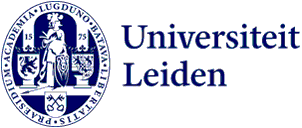Workshop | TEAL series
First TEAL Workshop
- Date
- Wednesday 4 June 2025
- Time
- Serie
- Teaching East Asian Languages (TEAL): Challenges, Ideas and Innovations
- Address
-
Herta Mohr
Witte Singel 27A
2311 BG Leiden
The first Teaching East Asian Languages (TEAL) workshop covers:
- The Focused Theme Authenticity in TEAL: Colleagues will explore what “authenticity” really means in TEAL and how it ties into approaches like content-based teaching, corpus-driven methods, AI, and other Computer-Assisted Language Learning (CALL) innovations. Colleagues will be invited to give talks on this topic, and a panel discussion will follow.
- The Broader Theme Current Practices and Innovations in TEAL: Colleagues are encouraged to present practical and innovative TEAL pedagogy techniques or relevant research. A panel discussion will also address questions from all participants, ensuring relevant and insightful exchanges.
Details on participation:
Our participation capacity is limited. Registration is needed. For teachers in CJK studies: Please complete the registration form sent to you via email. For other interested colleagues: Kindly email us to inquire about availability.
Coordinators of the first workshop:
Agenda
|
Time |
Session |
|
9:00–9:10 |
Tea Start |
|
9:10–9:15 |
Welcome Opening by Maghiel van Crevel |
|
9:15–9:55 |
Opening Talk Moderator: Zhaole Yang *30 minutes talk +10 minutes discussion |
|
“Authenticity in language teaching: A taste of Mandarin” by Jeroen Wiedenhof |
|
|
9:55–10:10 |
Tea Break |
|
10:10–11:30 |
Talks on Authenticity in TEAL Moderator: Eline Sikkema *15 minutes talk + 5 minutes discussion |
|
|
10:10–10:30 by Ae Ree Nam and Min Kyung Lee |
|
|
10:30–10:50 “Integrating Content-Based Language Teaching (CBLT) by Anne Sytske Keijser |
|
|
10:50–11:10 “Authenticity in Tasks and Situations for Novice-Level by Yuta Mori |
|
|
11:10–11:30 “Authenticity in language acquisition: Is what we teach by Eline Sikkema and Zhaole Yang |
|
11:30–11:45 |
Tea Break |
|
11:45–12:30 |
Discussion on Authenticity in TEAL Moderator: Ae Ree Nam
|
|
12:30–14:30 |
Lunch Break |
|
14:30–15:30 |
Talks on Current Practices and Innovations Moderator: Ying-ting Wang |
|
|
14:30–14:50 “Integrating Chinese Social Media into a BA3 by Yinzhi Zhang |
|
|
14:50–15:10 “Feedback on the Speaking Contest with by Jeongyeon Kim and Yeoheul Kim |
|
|
15:10–15:30 “Dyslexia Needs Analysis” by Keiko Yoshioka |
|
15:30–15:45 |
Tea Break |
| 15:45–16:30 |
Discussion on Current Practices Moderator: Jin Hee Park |
|
|
|
16:30–16:45 |
Conclusion Closing by Keiko Yoshioka |
